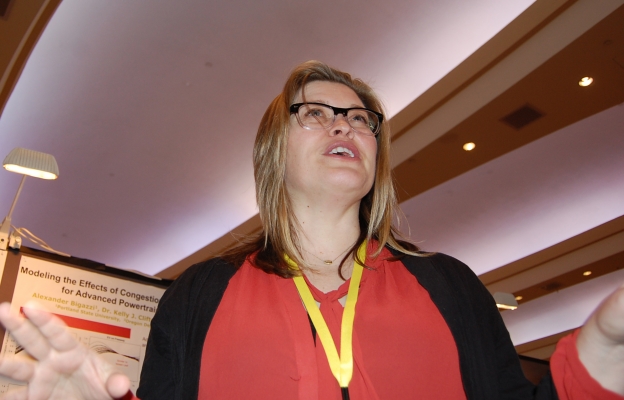Planners looking to develop an dense mix of urban land uses often face a dilemma: they’re using trip-generation models that undercount the very trips on bicycle and foot that the planners encourage while paving the way for more driving.
Portland State University Associate Professor Kelly Clifton dove into the topic Monday, presenting a paper at the Transportation Research Board annual meeting in Washington D.C. Kristina Currans of PSU, April Cutter of Metro, and Robert Schneider of the University of California Berkeley are coauthors.
Clifton and other panelists agreed that the Institute of Transportation Engineers’ trip generation rates don’t adequately reflect actual trips in an urban area with multiple land uses and transportation modes. They differed on the remedy, however.
Presenting another paper, Associate Professor Kevan Shafizadeh of California State University Sacramento, evaluated and tested several complex methods, finding that none truly suits smart-growth development projects. However, Shafizadeh and his team found that every method tested does a better job at predicting the number of trips generated than the ITE rates.
We need to predict trips better, Clifton said, but perhaps a simpler solution exists. She acknowledged Shafizadeh’s conclusions that each alternative also had deficiencies in certain applications, and suggested that the ITE rates could be tweaked instead of scrapped entirely.
“It’s a Band-Aid to temporarily adjust...
Read more
